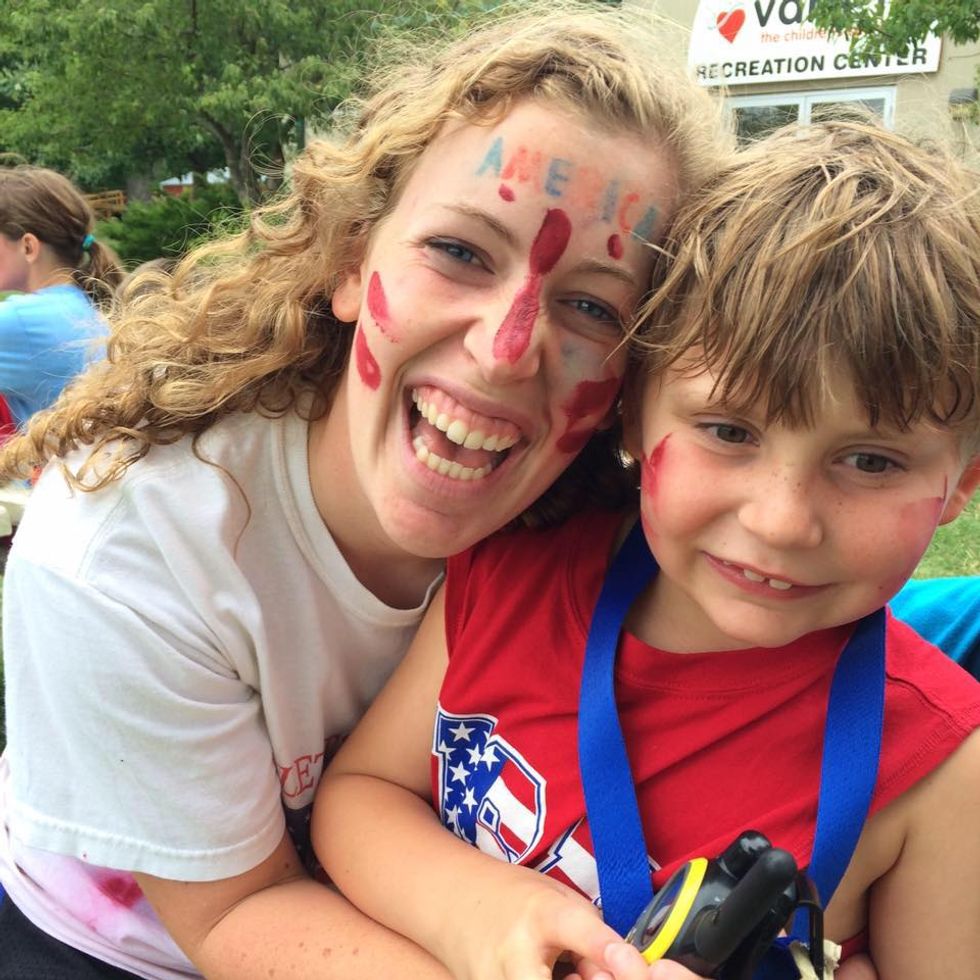Tara D’Andrea knows that she’s been given an irreplaceable gift that she desperately needs to share with her community – the gift of knowledge – and she uses Autism Speaks as her primary platform to do just that. In an attempt to help explain how the average college student can take the first step toward understanding the lives and struggles of their peers with autism, she has started to implement awareness facts into every Autism Speaks meeting, starting off the latest one by saying, “The most important thing to remember about autism is that it’s a spectrum, so it’s different for everybody.”
As recent as 2006, there was evidence that there’s “an average of 4.28 students with [Asperger Syndrome] at four-year institutions and 8.9 students at community and technical colleges.” AS, the common shorthand for Asperger Syndrome, is a mild form of autism that “carries the best prognosis of all the spectrum disorders for independent functioning in adulthood, as many individuals complete high school and college and go on to successful careers.” Therefore, the vast majority of students with autism at any given university are likely to be students with AS, in particular.
In recent years, however, the Diagnostic and Statistical Manual of Mental Disorders (DSM) has changed the way they categorize autism, eliminating Asperger Syndrome and calling it simply “high-functioning autism” on the autism spectrum – thus these aforementioned college students would typically be seen today as high-functioning.
Tara, the current vice president of Autism Speaks at Marist College and a special education teacher in the making, has developed a strong and deep passion for students with autism through her own personal experiences. Throughout her life, she’s been engaging and working with kids with autism, and now she’s taking it one step further by advocating for them through her research.
Interested in addressing the challenges and needs of students with autism in the college environment especially, she has been conducting research on how RAs, like herself, and other school employees – teachers, administrators, etc. – can foster an inclusive and accepting environment for students coming in with different experiences and needs.
So, for those who show up to college freshman year with a suitcase full of clothes and the extra baggage of a hidden disability, what are the actual challenges?
Anne, an employee of the Autism Society, put it this way: “People with autism don’t pick up the social signals that typical people do and so they don’t always react in the way we expect them to. That can be an obstacle but it doesn’t have to be.” While recognizing that some schools do have programs set in place – like RIT’s Spectrum Support Program and programs run by AHEADD (Association on Higher Education and Disability) on campuses – she also says that there’s more to be done.
She suggests the use of counselors who are there when students need them for concerns they don’t know how to handle, or even social groups with other students with AS, “you know, anything that will help them over that feeling of isolation.”
In college, even something like roommate problems can become a much larger issue, since these can be amplified when one roommate suffers from the “invisible disability” of autism – a common term used to relate the difficulties of having a developmental disorder that is not obvious to those on the outside looking in. Stalking accusations are also a huge issue according to Tara, who has been a Resident Assistant in freshman dorms for the past three years.
“When it’s not obvious they do have autism [and most people do not like to disclose this very personal information], people think they’re up to something or being deceitful. Behaviors like lack of eye contact can get them in trouble because they’re [seemingly and unknowingly] emanating signs of guilt,” she states. Noting that she’s dealt with these issues, as well as bullying and escalations (or meltdowns) caused by things we often overlook such as fire drills, Tara has developed a research project and website with advice for RAs on how to recognize and aid their residents with autism.
Her website encourages RAs to educate themselves on how to handle situations like these, since there won’t always be someone like Tara around to inform them of what’s really going on behind conduct allegations such as stalking – where a student with autism could simply think that you’re their friend and want to spend more time with you, not realizing that their constant presence may sometimes make you feel uncomfortable. Again, it's important to reiterate that this is one possibility in a broad spectrum of possibilities, and that to generalize or stigmatize all those with autism to fit one category or even one series of categories is absurd.
With challenges like this, however, parents are faced with a difficult decision when it comes to education for their child with autism: do they encourage them to pursue higher education, no matter the struggles, or do they allow their child to take a different path, despite the uncertainty? Kimberly Hogue, the mother of an 8-year-old boy with autism, Shea, says that it’s not worth it to fear the future – all you can do is embrace what will be.
“The school system Shea’s in right now is going above and beyond. He has a special aide who’s with him all day; he’s never alone. That’s amazing. Who pays for that?” And when it comes to college, she’s all about giving her child what he wants most, whether it be routine trips to Wendy’s every night, strolls through Home Depot, or a college education.
“If he wants to go to college, it’s up to him,” she says. “Better to have a good quality of life than try to fit a square peg in a hole, if you know what I mean. It’s his life, he should do what makes him happy.”
For additional information, check out Tara’s website at http://educ150tqd.wixsite.com/residentswithautism





















